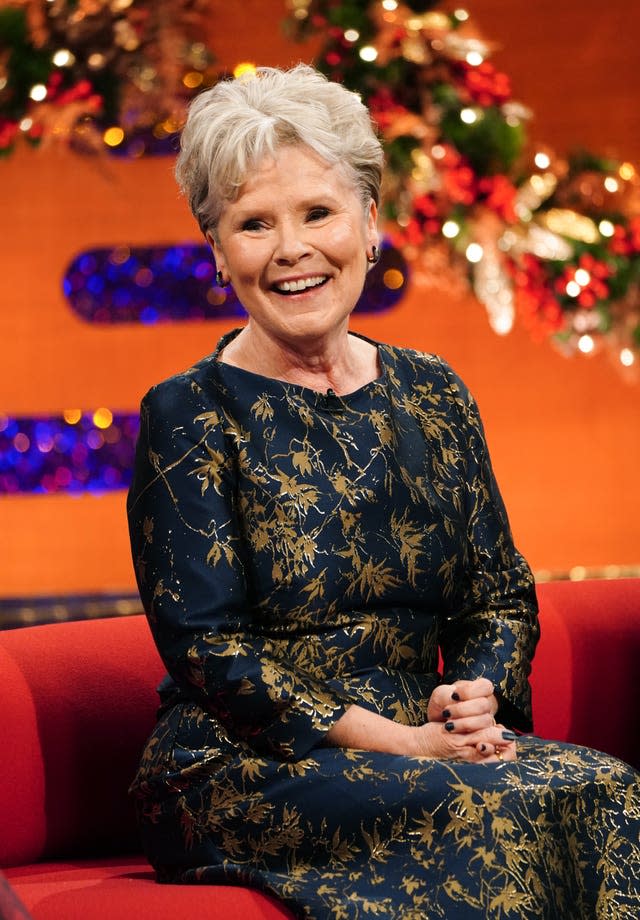Olivia Colman ‘shocked at neglect of arts funding in UK’
The Crown stars Olivia Colman and Imelda Staunton are calling for more funding of the arts in the UK after “shocking” levels of neglect were found across the country.
Oscar-winner Colman, 50, was reacting to a report commissioned by performing arts and entertainment union Equity, which said financing of British arts councils fell by 16% in real terms between 2017 and 2022.
The data, which was based on Freedom of Information requests to every arts council in the UK and puts the fall over the five years at £189,981,567, was analysed by research organisation Autonomy Institute.
Colman, who played Queen Elizabeth II in The Crown and won a best actress Oscar for her portrayal of 18th century monarch Queen Anne in The Favourite, said “billions of people” watch UK films, theatre and TV shows.
She said of the report: “It is shocking to see how this key sector of the economy, and its workforce, has been neglected, despite its huge contribution to the UK’s standing in the world, and our public life.
“A lack of government funding increasingly means that only the wealthy can afford a ticket to a show, or to build a career working in the industry. Only some people are able to share in the stories being told.
“Equity’s analysis demonstrates that whoever wins the coming election must urgently bring forward plans to invest in the arts and entertainment here. This is just common sense.”
According to the Autonomy Institute’s findings, the five-year period between 2017 and 2022 saw drops in funding of 11% in England, 30% in Wales and 16% in Northern Ireland.
Scotland saw an increase of 2% during the same timeframe, the report noted.
Staunton, who starred in the Harry Potter series of films and took over from fellow Equity member Colman as Elizabeth II in The Crown, said: “We’re living in a golden age of drama, especially on streaming platforms, thanks to the exceptional ability of the UK arts workforce to bring world-class storytelling to global audiences. But too many places in the UK have been left without arts funding, depriving audiences and performers alike.
“With proper funding, there is no limit to the potential for the arts to inspire and entertain, encouraging both human creativity and economic benefits. I want to see all parties promising much more on the arts.
“They are not just a ‘nice to have’ – they are essential to the thriving, confident country we all want to live in.”

Equity is asking political parties during their General Election campaigns to commit to increase UK arts and entertainment funding to 0.5% of GDP, require funded bodies to only use its union-only agreements, and change Universal Credit to help freelancers.
A Scottish Government spokesman said: “Despite the challenging budget situation as a result of high inflationary pressures, Scottish ministers have increased culture sector funding by £15.8 million to £196.6 million this financial year, as the first step to achieving our commitment to invest at least £100 million more annually in culture and the arts by 2028/29.
“Through this increased investment we want to drive up opportunities for participation in creative pursuits, support the production of new works, and ensure that Scotland’s cultural output has platforms at home and abroad.”
The bodies Arts Council England, Arts Council of Northern Ireland, the Arts Council of Wales, Creative Scotland along with the UK and devolved Governments have been contacted for a response.
Arts Council England, Creative Scotland and Arts Council of Wales declined to comment due to purdah, the pre-election period which means public bodies have to exercise “caution” before the UK goes to the polls.
A spokeswoman for Northern Ireland’s department for communities said “difficult decisions had to be taken” due to the recent “financial situation”.
They added: “This included applying a 5% reduction to the Arts Council’s budget, reducing it by £500,000 to £9.7 million.
“However, since taking office, the minister has allocated additional funding of more than £1.5 million to the Arts Council, addressing some of the funding challenges being experienced across the sector.”
An consultation has also been launched by the department for the 2024-25 budget, which will run until September 3.


